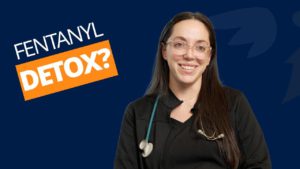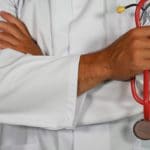
Breaking Chains with Summer House: Top Drug Addiction Treatment Center in Miami
As the shadows of drug addiction continue to grip many lives, finding the right treatment center becomes a beacon of hope. Summer House, located in
We want to make your stay here at the Summer House Detox Center as comfortable as possible. We provide a very relaxed environment where we administer the medication and supervise you as you go through withdrawal effects.
Our facility will be a home away from home where you can safely and comfortably begin the process of becoming sober. Summer House provides comfortable services and amenities during your stay.
Contact Us

Seek help today from Miami’s premiere private in-patient drug and alcohol detox center.
Summer House Detox Center will be by your side during the important but difficult step of detoxification, which includes supervised medicated treatments.
Our medical staff and therapists will guide you through the road of recovery that is tailored to your addiction. Everyone is special and will be treated with the respect and dignity you deserve as you treat your disease.
Start fighting back today!
Learn

We gather valuable information needed to determine and provide the best level of care for you.

June 9, 2020
In general, the ultimate goal of seeking alcohol detox followed by alcohol rehab is to avoid relapse in the future and to build a safe, effective recovery plan for the rest of your life. The truth is, however, relapse does still occur in the lives of most addicts. Since addiction is a chronically relapsing disease, it is important not to ignore the possibility that you may experience a relapse and instead, to understand that a relapse may require further help, including another alcohol rehab program.
Summer House Detox Center offers help to people recovering from alcohol abuse, no matter what stage of recovery they are currently experiencing. We are happy to help you work through your addiction syndrome and to build a strong life in recovery that works for you. Call 800-719-1090 now to learn more.
Yes. Whether you choose to seek alcohol rehab in Florida or somewhere else in the country, it’s not unlikely that you will experience problems with relapse at some point during your recovery. However, this does not mean you should live in fear of the possibility of relapse, as it is common and in no way means your attempts at recovery have failed.
According to the National Institute on Drug Abuse, rehab has a great track record for helping people recover and live better lives. Most people who seek addiction treatment for either drugs, alcohol, or both, stop abusing substances, become physically and psychologically healthier, and function better at school, at work, at home, and in their communities. Still, relapse is often a part of recovery. This is because addiction is not curable but is rather known as a chronically relapsing disease, meaning the person who suffers from it will often experience lapses that lead to setbacks in recovery.
Addiction, in fact, is a lot like other chronically relapsing diseases, such as asthma, diabetes, and hypertension. People who find out they have these diseases often do well for a while, taking their medication and working hard to manage the issue. Over time, however, they might experience a setback that could be due to many things, such as:
Therefore, relapse is normal. It isn’t just a person’s inability to stay sober or avoid alcohol abuse, and it isn’t entirely a problem that could be solved with more willpower. Addiction will always be a part of you, and it’s important to be vigilant about avoiding a return to substance abuse. Unfortunately, though, it does happen in many cases, sometimes more than once.
According to NIDA, 40% to 60% of drug and alcohol addiction patients relapse after rehab. This is compared to 30% to 50% of diabetes patients, 50% to 70% of hypertension patients, and 50% to 70% of asthma patients who relapse as well. It’s important to be aware that this is always a possibility as well as why it happens, rather than simply telling yourself that relapse must be avoided at all costs.
Absolutely not. If you relapse, it means you need more help in order to continue your safe recovery, but it does not mean that you have failed in your journey of recovery, nor does it mean that you need to start over at square one. It might mean you will need additional rehab in order to build new coping skills to avoid relapse in the future.
It’s important to be aware of your surroundings, your situation, and to ask for help.
After you are safe, sober, and have someone looking out for you, it’s time to ask yourself: Do I need to go back to rehab?
There are many ways you can know if you need to return to rehab after a relapse. For one, ask yourself, “Was this just a slip or a serious relapse?” A slip is a mistake that is minor or short-term. It does not create dire consequences and the individual who undergoes the slip will often realize their mistake before serious issues occur. If, however, you have experienced a setback in your recovery leading to serious consequences, continued abuse, or dangerous actions, you will want to seek rehab again.
Ask yourself these questions. If you answer yes to one of them, rehab is most likely necessary in order to continue your safe recovery.
If you do realize you need to seek further rehab treatment after your relapse, remember not to think of it as a failure. Instead, it’s another step on your journey of recovery, which does not end at a finish line but in the safe and secure daily management of your illness.
According to NIDA, a relapse means treatment may need to be modified or that an individual requires another dose of treatment in order to continue the safe management of their addiction and recovery. When you go back to rehab for alcohol addiction, it will probably feel very different than the first time around.
When you go back to rehab after relapse, the process will certainly be familiar but the important thing to remember is that you haven’t failed in your recovery, nor do you need to start over from the beginning. Instead, think of yourself like a car that needs a tune-up. You may just need to make a few tweaks here and there to your lifestyle and your coping mechanisms to help you rebuild and maintain your recovery program. In addition, getting some time away from your day-to-day life so you can reflect on what’s working for you and what’s not will make a big difference as well.
Have you relapsed and need help reestablishing your healthy recovery? Call 800-719-1090 today to speak with us about our program or to find information about rehab after relapse in general. We are always available to speak with you about your recovery through our safe, confidential, and 24-hour hotline. Visit our addiction treatment center in Miami at 13550 Memorial Highway Miami, FL 33161.

As the shadows of drug addiction continue to grip many lives, finding the right treatment center becomes a beacon of hope. Summer House, located in

Are you looking for a safe and compassionate drug detox center in Kendale Lakes, Florida? If so, look no further than Summer House Detox Center.

Are you looking to escape addiction in Homestead, Florida? Summer House Detox Center is one of the best detox centers in the area. Located just
For immediate assistance, please call our Admissions Specialists at 800-719-1090.


Speak With A Qualified Addiction Specialist 24/7